Regatta Survival Guide for Parents
Go early and plan to stay all day
Parking is often limited at regatta sites so you want to arrive when the trailer does to find space. Be prepared to walk longer distances if you arrive later in the day. If you are a chaperone, you must plan to stay all day as rowers are expected to be there when the boats arrive and stay until the boats are loaded at the end of the day. After most regattas, rowers are also expected to help put the boats back on the racks on the trailer,
Dress for everything
No matter the time of year, a long regatta day can have all types of weather. The better you prepare, the more you’ll enjoy the day. Mornings are almost always very cold and sometimes it’s a long day in the rain. Take plenty of layers and warm socks. A change of clothes or shoes are often needed if it’s raining. There is often mud even without rain. Bring a hat and a good pair of sunglasses – if the sun does come out you’ll be looking at water and the reflection can be very strong. You can never bring too many clothes (at least the first time).
Bring anything you might need
At most regattas there is no store nearby. Bring whatever personal items you might need, including your favorite snacks and a thermos of coffee. Food and coffee are often provided but may be gobbled up by rowers before you get to it. Restrooms are often port-a-potties so come prepared with toilet paper and hand-sanitizer if you prefer.
How to watch the races
Be sure to get a race program when you arrive or look on the white board in our tent to find race times. Look at the glossary of terms provided on this site to interpret the rowing terms or use your ignorance as a conversation starter with fellow parents. Your rower will walk with their boat down to the launch area at least an hour before the race. This can be a good time to take photos, but be careful to not get too near the boats and rowers as it can create confusion. For the next 45-60 minutes their boat will be off in the distance beyond what you can usually see. You will need binoculars to see the boats when they come down the course until the last 500 meters. Be sure to cheer them on as they do hear us from the boat! You will soon learn that taking pictures can be disappointing without a strong telephoto lens.
What to do the rest of the day
Regattas are almost always very long days. The best way to pass the time is to volunteer and socialize with other parents. We need help with set-up and tear down, with food prep and service, and there is cleaning up all day long. Sometimes parents are needed to run errands (pick up coffee, sandwiches, etc.). Bring a chair, a blanket and even a book or computer to pass the time. At some locations there are great trails and paths for walking or running. Keeping yourself nourished
We provide food for rowers and usually for chaperones. Regattas are not usually in areas with stores so bring enough food and drink for a full day if you are not eating at the tent. Bringing your own full water bottle is always a good idea.
Other things to know
The boat area can get very congested. It is meant for coaches and rowers who are rigging or derigging boats and getting ready for races. Use caution if you need to go through this area. Most large regattas sell T-shirts and other rowing gear. If you’re interested, buy early as they run out of sizes by the afternoon. It’s good to bring extra cash with you for vendors and parking as there won’t be ATMs nearby. It’s a good idea to pack and load the car the night before. Help your rower prepare the first time but encourage them to be independent in their sport. Mark all their clothes, especially their unis, with their names. They should only carry one bag with their things – with 100's of rowers it can get very chaotic and personal items often get lost. Many rowers bring homework to do during the time they’re not racing.
What to bring (Rowers)
Uni Long sleeved shirt for layering Fleece or hooded sweatshirt Sweats or other warm pants Complete change of clothes for after race (this is important) Socks – 3 or 4 pairs at least Slip-on/off shoes for docks Warm hat Blanket or sleeping bag Money – if needed, T-shirts or food on return trip Homework, iPod, books, cards, etc.
What to bring (Parents)
Rain gear (including an umbrella) Layers of clothing Warm hat Comfortable walking shoes and/or waterproof shoes or boots Binoculars Camera Chair Snacks and beverages, water bottle Blankets Sunscreen and sunglasses Directions to the regatta
Parking is often limited at regatta sites so you want to arrive when the trailer does to find space. Be prepared to walk longer distances if you arrive later in the day. If you are a chaperone, you must plan to stay all day as rowers are expected to be there when the boats arrive and stay until the boats are loaded at the end of the day. After most regattas, rowers are also expected to help put the boats back on the racks on the trailer,
Dress for everything
No matter the time of year, a long regatta day can have all types of weather. The better you prepare, the more you’ll enjoy the day. Mornings are almost always very cold and sometimes it’s a long day in the rain. Take plenty of layers and warm socks. A change of clothes or shoes are often needed if it’s raining. There is often mud even without rain. Bring a hat and a good pair of sunglasses – if the sun does come out you’ll be looking at water and the reflection can be very strong. You can never bring too many clothes (at least the first time).
Bring anything you might need
At most regattas there is no store nearby. Bring whatever personal items you might need, including your favorite snacks and a thermos of coffee. Food and coffee are often provided but may be gobbled up by rowers before you get to it. Restrooms are often port-a-potties so come prepared with toilet paper and hand-sanitizer if you prefer.
How to watch the races
Be sure to get a race program when you arrive or look on the white board in our tent to find race times. Look at the glossary of terms provided on this site to interpret the rowing terms or use your ignorance as a conversation starter with fellow parents. Your rower will walk with their boat down to the launch area at least an hour before the race. This can be a good time to take photos, but be careful to not get too near the boats and rowers as it can create confusion. For the next 45-60 minutes their boat will be off in the distance beyond what you can usually see. You will need binoculars to see the boats when they come down the course until the last 500 meters. Be sure to cheer them on as they do hear us from the boat! You will soon learn that taking pictures can be disappointing without a strong telephoto lens.
What to do the rest of the day
Regattas are almost always very long days. The best way to pass the time is to volunteer and socialize with other parents. We need help with set-up and tear down, with food prep and service, and there is cleaning up all day long. Sometimes parents are needed to run errands (pick up coffee, sandwiches, etc.). Bring a chair, a blanket and even a book or computer to pass the time. At some locations there are great trails and paths for walking or running. Keeping yourself nourished
We provide food for rowers and usually for chaperones. Regattas are not usually in areas with stores so bring enough food and drink for a full day if you are not eating at the tent. Bringing your own full water bottle is always a good idea.
Other things to know
The boat area can get very congested. It is meant for coaches and rowers who are rigging or derigging boats and getting ready for races. Use caution if you need to go through this area. Most large regattas sell T-shirts and other rowing gear. If you’re interested, buy early as they run out of sizes by the afternoon. It’s good to bring extra cash with you for vendors and parking as there won’t be ATMs nearby. It’s a good idea to pack and load the car the night before. Help your rower prepare the first time but encourage them to be independent in their sport. Mark all their clothes, especially their unis, with their names. They should only carry one bag with their things – with 100's of rowers it can get very chaotic and personal items often get lost. Many rowers bring homework to do during the time they’re not racing.
What to bring (Rowers)
Uni Long sleeved shirt for layering Fleece or hooded sweatshirt Sweats or other warm pants Complete change of clothes for after race (this is important) Socks – 3 or 4 pairs at least Slip-on/off shoes for docks Warm hat Blanket or sleeping bag Money – if needed, T-shirts or food on return trip Homework, iPod, books, cards, etc.
What to bring (Parents)
Rain gear (including an umbrella) Layers of clothing Warm hat Comfortable walking shoes and/or waterproof shoes or boots Binoculars Camera Chair Snacks and beverages, water bottle Blankets Sunscreen and sunglasses Directions to the regatta

